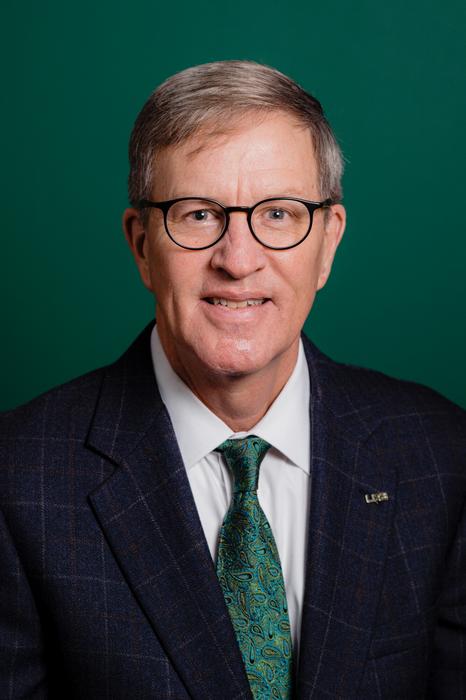BIRMINGHAM, Ala. – Chris Brown, Ph.D., is a former researcher who now heads research administration at a university with more than $780 million in research expenditures. Yet Brown — like other research administrators across the nation — had to learn his profession on the job because there is no complete, formal, recognized career training for the thousands of people who have a version of “research administrator” in their titles.

Credit: UAB
BIRMINGHAM, Ala. – Chris Brown, Ph.D., is a former researcher who now heads research administration at a university with more than $780 million in research expenditures. Yet Brown — like other research administrators across the nation — had to learn his profession on the job because there is no complete, formal, recognized career training for the thousands of people who have a version of “research administrator” in their titles.
To fill this critical gap, Brown, vice president for Research at the University of Alabama at Birmingham, will lead a three-year, $2.8 million National Science Foundation grant to create a for-credit curriculum in research administration and management for undergraduate students at over 40 universities the United States and three in South Africa and Namibia.
“This will provide a viable professional career option for future research administrators and managers,” Brown said. “Their service provides the backbone that supports research, scholarship and service at universities, industry, government and not-for-profit organizations. These individuals are critical to achieve successful outcomes, including technical innovation and improvement in the quality of life.”
Brown is principal investigator for the grant, “Filling the Gap: Establishing an Undergraduate Program in Research Administration and Management,” in collaboration with a team of senior research leaders across the country that will help manage the project.
The current lack of a research administration curriculum in colleges means:
- Few undergraduates aspire to become research administrators because they are unaware it is a career option.
- Individuals enter the profession with little or no foundation for managing highly complex legal and regulatory issues.
- Entering research administrators must be trained on the job in the full complex of issues, rules, processes and procedures, and expectations that require many years of experience to master.
Under the grant, credit-bearing modular courses will be created for adoption by two- and four-year institutions as standalone micro-credentials, as a for-credit credential, or incorporated into a curriculum as part of a research administration concentration or minor. Online classes can be supplemented by existing university courses like technical writing, accounting and communication. At UAB, Brown has begun meetings with faculty and college leaders to create a path to implement this new curriculum.
Brown credits Lynne Chronister, the project lead for the grant and former vice president for Research and Economic Development at the University of South Alabama, for spearheading the grant application process when they both served in the Council on Research at the Association of Public and Land Grant Universities, Washington, D.C. “Lynne’s vision and leadership for ‘Filling the Gap’ cannot be overstated,” Brown said.
The curriculum modules are being developed by Evan Roberts, executive director of the Society of Research Administrators International, Arlington, Virginia, with support from an advisory group of senior research officers, SRAi members, and the Innovation and Learning Center at the University of South Alabama. SRAi has been developing training modules since 2021, and the first set of modules will be available in fall 2025. Other significant contributors to “Filling the Gap” are the University of Miami, Miami, Ohio; the University of Illinois Urbana-Champaign; Alabama A&M University; the University of California, San Diego; and New Mexico State University.
Victor McCrary, Ph.D., vice president for Research at the University of the District of Columbia, or UDC, and the vice chair of the National Science Board, is a participant and is enthusiastic about the potential of “Filling the Gap.” “This partnership helps increase research administrative capacity as the NSF and the National Science Board seek to expand research and research capacity at all of our institutions across the nation,” McCrary said. “UDC looks forward to this exciting endeavor in creating this curriculum in research administration, especially for community colleges and emerging research institutions like UDC.”
Topics in the curriculum will include an overview of research administration and management, legal issues in sponsored projects, principles of grant, and contract budgeting. Also included will be managing human subjects and animal research, promotion and compliance with international grants and contracts, basics of intellectual property protection, managing external audits for grants and contracts, and preparing and reviewing requests for proposals.
Up to 40 universities and community colleges have sent letters of interest about offering the “Filling the Gap” curriculum as a degree program or concentration.
Two other goals of the grant are creating a marketing toolkit and social media campaign for university and college participants, and providing a guidebook on work-based learning best practices for recruitment and retention of students, including mentoring, experiential learning opportunities and other support.



